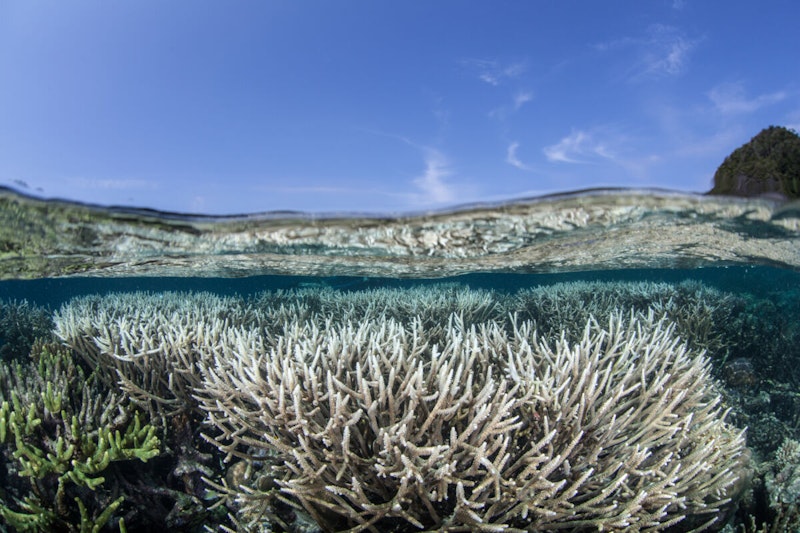In the News
Is it Doom and Gloom, or Time to Act for Conservation?

4th October 2022
You might be forgiven for thinking conservation is a doomed enterprise, in the twenty-first century. But recent science provides us with fresh hope and as a geography teacher, teaching about Ecosystems under stress, I am always on the look-out for this.

We hear there are plans afoot to scrap important environmental protections in this country, including the Habitat Regulations which helped preserve the UK’s most vulnerable wildlife, its special green (and blue) places. The Government’s newly announced ‘investment zones’, with downgraded planning laws could be in national parks. The UK is already listed as being in the bottom 10% of countries in terms of biodiversity worldwide. And globally, ecosystems must now adapt to a changing climate. The bad news for nature blankets our media, on a daily basis.
But what of those green shoots I mentioned? Last week, there was new evidence that conservation works in the form of a report commissioned by Rewilding Europe, looking at progress made by 50 European species. Grey wolves are one of its key success stories. Wolves have now repopulated regions of Europe, where numbers increased by nearly 1,800% from 1965-2016. Many bird species surveyed are also recovering, including barnacle geese and griffon vultures.
‘This report gives cause for optimism and shows that given a chance, and with well-placed conservation efforts, wildlife can recover’ explained lead author Sophie Ledger of ZSL.
Understanding the value of biodiversity to us humans is, of course, crucial to securing ongoing support for sensitive ecosystem management. As Kathy Willis, Director of Science at the Royal Botanic Gardens Kew noted:
‘[Beyond the 15% of plant and animal species protected in reserves, globally] the biodiversity that we have to maintain is the biodiversity we identify as being important for us and for human wellbeing.’
Earlier this week I listened to a brilliant interview with Tim Lamont, a young ecologist who studies the sounds of fish living on coral reefs – it's an episode of the BBC’s The Life Scientific Radio 4 series. Tim’s original research on Australia’s Great Barrier Reef, where he witnessed the devastating effects of the 2016 coral bleaching event, led him to explore what he could do to make a difference to the active conservation of coral reefs. Combining active habitat restoration with underwater ‘broadcasts’ of sound recordings from healthy reefs, his research has demonstrated that sound can promote the re-development of these ecosystems; revealing a ‘powerful tool’ for conservationists, in this instance, working in Indonesian waters.
Asked why we should bother about the potential loss of coral reefs around the world he gave two compelling reasons:
‘We would be facing a humanitarian disaster – there are hundreds of millions of people around the world who rely on coral reefs for their livelihoods, to feed their families … to protect their homes from coastal storms …
‘[In addition] these are some of the most unique, and most beautiful and most irreplaceable environments on our planet – there is nothing else in this world like the beauty, and complexity of these reefs. It would be like watching Notre Dame burn again…’
So, yes, a loss of these underwater ecosystems would be felt by scientists, tourists, even artists but such ecological damage is also an issue of social justice. Some of the world’s poorest people depend on the functioning of these natural systems –their biodiversity has a real value to them.
When Lamont was asked about whether he has hope that the necessary actions will be taken to protect our planet’s reef systems, he gave an answer beyond his years, which some A Level students may benefit from hearing:
‘I don’t like thinking of it as a binary like that, I don’t like this narrative that either it will be "too late" and we’ll lost everything or "we’ll make it" and come out as the heroes of the hour – the truth is a lot more nuanced than that...
‘I often find myself daunted by the challenge ahead but I also find myself encouraged and inspired by the fact that, although our generation faces more damage than any generation before it, our generation is also in a better place than any other generation to solve it…
‘We when look at the tools that we are equipped with, the technologies that are emerging to help us with decision making and ecosystem management … and when you look who is involved … we have a most inclusive, more diverse global team … we’ve got more women leading environmental science than in any other point in history, we have more teams from the developing world driving and leading … That diversity gives us strength, it gives us new ideas, new ways of thinking and that gives me hope going forward, that there will be solutions in some places that we will make progress in some areas – the future doesn’t just have to be bleak ahead of us, we can make a difference.’
Useful links:
The 'Sounds of coral reefs', on BBC Radio 4’s The Life Scientific can be accessed via BBC sounds here.
You can find out more about the findings of the European Wildlife Comeback Report 2022 here.
The State of Nature 2019 report can be found here.
The Science team at the Royal Botanic Gardens at Kew are due to publish their next State of World's Plants and Fungi 2023 report later this month here.
You might also like
Ecosystem Succession
Study Notes

The Big Picture on Oceans
23rd August 2017

What dust from the Sahara does to the planet
21st October 2017
GCSE Geography | Global Biomes (Ecosystems 4)
Study Notes
Tri-Dominoes - Living World (Paper 1) | Revision Activity
Teaching Activities
'Clear the Deck’ Interactive Revision Quiz for Paper 1: Living World
Quizzes & Activities
